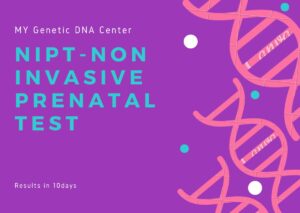Introduction about Karyotyping single test:
Karyotyping is a laboratory test that examines an individual’s chromosomes to identify any structural or numerical abnormalities. Chromosomes are thread-like structures found in the nucleus of cells that carry genetic information essential for growth, development, and overall health. Normally, humans have 46 chromosomes arranged in 23 pairs, but variations in their number or structure can lead to genetic disorders, fertility issues, or developmental delays.
The karyotyping single test involves collecting a small blood sample, usually from a vein, which is then processed to visualize the chromosomes under a microscope. By creating a detailed map called a karyogram, specialists can detect missing, extra, or rearranged chromosomes that may cause health problems or affect reproductive outcomes. This test is widely used in clinical settings to diagnose genetic conditions, investigate causes of infertility or recurrent miscarriages, and support prenatal screening and genetic counseling. Overall, karyotyping offers valuable insights into a person’s genetic makeup, aiding doctors and patients in understanding potential risks and making informed healthcare decisions.
What is the Purpose of Karyotyping single test?
The main goal of karyotyping is to identify chromosomal abnormalities that may cause genetic disorders, developmental delays, infertility, recurrent miscarriages, or certain health conditions. It helps diagnose conditions such as Down syndrome (Trisomy 21), Turner syndrome (missing X chromosome), Klinefelter syndrome (extra X chromosome in males), and other chromosomal rearrangements like translocations or inversions.
How is the Karyotyping single Test Performed?
A blood sample is usually collected to isolate white blood cells, which are then stimulated to divide in a lab. During cell division, chromosomes become visible under a microscope. Specialists stain and photograph the chromosomes, arranging them in a standardized format called a karyogram. This allows detailed examination for any structural or numerical abnormalities.
Benefits of Karyotyping single test:
Detects genetic causes of unexplained infertility or recurrent pregnancy loss.
Assists in diagnosing genetic conditions early for better management.
Supports family planning by identifying risks of inherited disorders.
Guides personalized treatment and reproductive choices.
Applications of Karotyping Single test:
Detects chromosomal abnormalities causing genetic disorders
Identifies causes of infertility and recurrent miscarriages
Assists in prenatal screening for conditions like Down syndrome and Turner syndrome
Helps diagnose chromosomal changes in certain cancers
Supports genetic counseling for risk assessment and family planning
Aids in understanding developmental delays and congenital anomalies.
Can karyotyping single test detect all genetic disorders?
Karyotyping, while a valuable tool for identifying chromosomal abnormalities, cannot detect all genetic disorders. This test specifically examines the number and structure of chromosomes to find large-scale changes, such as missing or extra chromosomes, translocations, deletions, or duplications. However, many genetic disorders are caused by smaller mutations at the DNA sequence level, such as single-gene mutations or subtle variations that karyotyping cannot detect.
For these types of conditions, more advanced genetic tests like microarray analysis, fluorescence in situ hybridization (FISH), or gene sequencing are required. Therefore, while karyotyping provides important information about chromosomal health and can explain many fertility issues or developmental problems, it is not comprehensive for all genetic conditions. In clinical practice, it is often used alongside other tests to provide a complete genetic assessment tailored to the patient’s specific needs.
What happens if the test shows abnormalities?
If karyotyping reveals abnormalities, it indicates that there are changes in the number or structure of chromosomes that could impact health, development, or reproductive outcomes. These findings can explain reasons behind infertility, recurrent miscarriages, or certain genetic disorders. When such abnormalities are detected, healthcare providers typically recommend genetic counseling to help the individual or couple understand the implications of the results.
During counseling, specialists discuss the nature of the chromosomal changes, the potential risks for future pregnancies, and options for managing or reducing these risks. Depending on the specific abnormality, options may include assisted reproductive technologies, prenatal testing during pregnancy, or other medical interventions designed to improve outcomes.
Genetic counseling also provides emotional support, helping patients navigate complex information and make informed decisions about their reproductive and overall health. In some cases, family members may be advised to undergo testing as well to assess inherited risks. Overall, discovering chromosomal abnormalities through karyotyping serves as a critical step toward personalized medical care and proactive planning.
What do abnormal karyotyping results mean?
Why might a doctor recommend Karyotyping single test?



